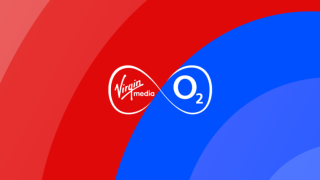The Middle East economies are recovering fast from the financial crisis that rocked the world a couple of years ago. The International Monetary Fund forecast that economic growth in the Middle East and north Africa regions would reach 4.1% in 2010, more than twice the rate in 2009, and may expand to 5.1% in 2011 as oil prices continue to rise. Average growth rates among oil exporters in the region, which include the UAE, Saudi Arabia, and Qatar, are projected to be higher over the next two years, compared with 2009. The IMF also predicted the UAE’s economy would grow by 2.4% 2010, and expand by 3.2% in 2011.
In line with this economic growth, connectivity in the region is ramping up. According to TeleGeography’s Middle East Bandwidth Pricing Review Oct 2009, upgrades to systems in the last two years have made a dramatic difference in available supply on Europe to Asia routes. Five new submarine cables have been brought into the region – Europe India Gateway (EIG), India Middle East Western Europe (IMEWE), Middle East North Africa (MENA), TE North and Flag Hawk - and they have increased the potential capacity between Egypt and Europe as much as 14 times. As demand for capacity is rising, similarly new locations are emerging as hubs for capacity.
Barrier to entry
Acquiring capacity in the Middle East is not necessarily a straightforward process. Over the past decade the various countries and Gulf States in the region have continuously invested in telecoms development. As a result of these growing telecoms markets, more complex regulations have developed. In order to deal with increasing demand and the fragmented nature of telecoms in the region, an opportunity for a noncompeting concept now offered by Tawasul Telecom developed. Tawasul Telecom is a regional player which provides a one-stop shop for enterprises and international telcos looking for connectivity in the region. Tawasul Telecom is a regional, rather than an international company and it provides an efficient and easy solution to acquiring connectivity in the Middle East.
Formed five years ago, with the backing of the Gulf Investment Corporation (GIC) and the National Technology Enterprise (NTEC), Tawasul Telecom is the first regional communications technology provider to offer easy-to-procure, fast connectivity across the Gulf Cooperation Council (GCC) region over a single redundant IP services network. It provides a one-stop managed network solution through the GCC and also operates a pan-GCC IP/MPLS data network, which can support its business services and solutions.
“We are not competing with global carriers, and even less with regional carriers. We are very much contributing to GCC unifi cation.”
A single solution
Tawasul Telecom has an established telecommunications services platform, which provides broadband telecommunications services to GCC-based companies and multinational institutions in the region and north Africa. Tawasul Telecom’s
platform uses next-generation technology from Cisco Systems and the capabilities of multi-route fibre-optic cables and private nodes in each of the GCC countries. This allows Tawasul Telecom’s range of terrestrial broadband services for telecommunications carriers, businesses, government bodies and institutions to cover the entire region.
Says Tawasul Telecom chief executive officer Hani Al-Shakhs: “Tawasul was formed in the middle of the GCC telecoms market deregulation with the goal of meeting the growing need for large companies to have regional and global data networks. Because most operators at that time were focussed on a single national market, there was clearly scope for a third party to combine their offerings into a single solution. Today this seems an obvious strategy, but in the 1990s global operators were borrowing billions to extend their fibre reach across oceans and between the world’s main financial centres.”
Although ownership of network assets has never been a large part of Tawasul Telecom’s strategy, its infrastructure is robust and redundant by design. The Tawasul Telecom network uses a mix of fibre-optic technologies with its unique MPLS backbone as its means of connection, and provides an outstanding quality of service to satisfy its customers. The Tawasul Telecom platform offers data connectivity, and allows customers to create private virtual networks via IP, and it also provides the means to achieve business continuity. The Kuwait-headquartered company has its own points of presence, hosting its own equipment in all Gulf Cooperation Council states of Bahrain, Kuwait, Oman, Qatar, Saudi Arabia and the United Arab Emirates – as well as Egypt and the UK. Another point of presence will be set up in India in 2011, ensuring connectivity to the important markets of the Asian continent. Tawasul Telecom’s network is self-healing, with at least dual fibre paths to create an automatic data recovery solution, so data is automatically rerouted to another path to prevent delays and congestion in the event of an outage.
Focussed on customer needs
Al-Shakhs maintains Tawasul Telecom’s approach serves its business customers better, as it is focussed solely on the customers’ needs rather than on any requirement to use its own expensive network. Tawasul Telecom’s role, he added, “should not be building global networks, rather, the company should focus efforts on building its network capabilities in a region, reducing its cost base and delivering network services efficiently.”
Al-Shakhs says that the company’s offering gives unprecedented reliability, flexibility and throughput: “Tawasul Telecom is positioned to provide easy procurement and smooth end-to-end provisioning of ‘any to any’ services, for both carriers and enterprises alike. We are partners with the dominant carriers in the region and with international Tier 1 operators, and have established a unique pan-Gulf next-generation IP network. Our network infrastructure is redundant by design, we have at least two links connecting each country and we use different cable systems – Fog, Falcon and terrestrial – for optimum redundancy. This approach serves business customers better, as it is focussed solely on the customers’ needs. We are not competing with global carriers, and even less with regional carriers. We are very much contributing to GCC unification and to the development of communication in the Gulf by delivering international standard services to and from the GCC region.”
The company’s solution is fully managed, with a single point of accountability for all connectivity services and it is backed up by a technical team that stands ready to provide on-site support. Tawasul Telecom has a network operations centre (NOC) in Kuwait and another back-up NOC in Bahrain. The company maintains presence in every country either via an office or local provider partnership. The majority of its customers are ISPs, global service providers and Tier 1 operators.
Optimal performance
The network is engineered with capacity and redundancy to ensure optimal performance and survivability. Tawasul Telecom backs up its offerings with some impressive metrics. It is able to deliver carrier grade service level agreements (SLA), with 99.9% reliability, with guaranteed delay, packet loss and jitter values, a unique offering in the GCC region. It offers four classes of service on the core network:
1. Real-time class for applications that require rigorous timing control and performance metrics such as: streaming media, voice, and circuit emulation (VoIP traffic, video conferencing, etc)
2. Time-critical class for mission-critical applications with lower delay sensitivity than voice/video applications:
Economic recovery in the Middle East
According to the IMF’s World Economic Outlook October 2010, the strength of the recent economic recovery in the MENA region is largely underpinned by the rebound in oil prices from their trough in 2009, which has boosted receipts for oil exporters in the region. In addition, a sizeable and rapid fiscal policy response, especially in oil-exporting economies, has played a substantial role in supporting the non-oil sector in these economies. The IMF predicts that the Middle East’s oil importing economies will see robust expansion in 2011.
The report was optimistic about the region’s economic future, but also raised some notes of caution, warning that the economies in the region remain exposed to any drop in oil prices and to ongoing economic turbulence in Europe. A key medium-term objective is to raise potential growth and create jobs for the region’s rapidly growing population, according to the IMF report. The region needs to redirect trade towards today’s growth engines, attract foreign direct investment from these economies, and exploit the potential for intra-regional trade and FDI. This underlines the need for structural measures to enhance competitiveness. Improving the business environment, including through the establishment of strong legal and regulatory frameworks, is essential. Building human capital through greater emphasis on education and training will be particularly important, the report said.
surveillance video, applications with flow-control capable transport layers (video/audio streaming, mission-critical company data
3. Business class for sporadic LAN-to-LAN traffic, or applications that favour throughput over delay
4. Best effort class for lower-priority, sporadic applications like email, web browsing, file transfers and general data traffic.
The services offered by Tawasul Telecom enable global carriers to access all the countries in the GCC and Middle East as one region, making it truly a one-stop shopping experience. The services also make it possible for GCC-based companies to benefit from the competitive advantage of broadband even in regions where the terrestrial infrastructure is underdeveloped.
Tawasul Telecom services are customisable in terms of optimising the availability, security, and flexibility of the service. The Tawasul Telecom platform is the natural extension of the company’s business services to international markets.
In addition Tawasul Telecom has the highest service delivery record. With its experience, expertise and strong relations with its partners, contract arrangements and implementations that usually take months, are reduced to just weeks. The same agility applies to any service modifications, expansions and overall support.
“With the platform, we have further expanded our range of solutions for GCC pan-regional and multinationals based here,” comments Al-Shakhs, “making it more complete and competitive in regions such as the east Mediterranean and north Africa, which are of great commercial significance for us.”
A trusted supplier
“The provision of this service is part of Tawasul Telecom’s strategy to become a trusted supplier of solutions for its clients and partners, with whom we operate in close partnership to create new networks and telecoms services” adds Salem Al-Mulaifi, business development director at Tawasul Telecom.
“The GIC and other GCC government entities that shape its structure are both important to customers and leading providers of telecommunications services in their respective countries, and they support our efforts to offer high-quality connection services to businesses that are based in the region.”
Adds Al-Shakhs: “We are strongly supported by our investors and have vast telecoms experience within the company. We offer a single point of contact and fully managed end-to-end provisioning for our customers. We take the pain out of the Middle East equation and we look forward to working with increasing numbers of international wholesale telecoms providers as well as enterprises looking for connectivity throughout the Middle East.”
Contact
Salem Al Mulaifi
Business Development Director, Tawasul Telecom
Phone +965 22295 7205 Fax +965 22295 7205
salem.almulaifi@tawasultele.com www. tawasultele.com




